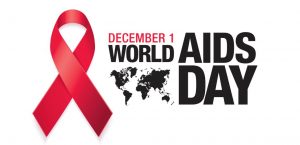Mission and Vision
MISSION
The mission of the Prevention and Health Promotion Administration (PHPA) is to
protect, promote, and improve the health and well being of all Marylanders and
their families through provision of public health leadership and through community
based public health efforts in partnership with local health departments, providers,
community based organizations, and public and private sector agencies, giving
special attention to at risk and vulnerable populations.
VISION
PHPA envisions a future in which all Marylanders and their families enjoy optimal
health and well being.
The Beginning: 1970’s
The virus has entered the U.S. and is being transmitted among the first cases.
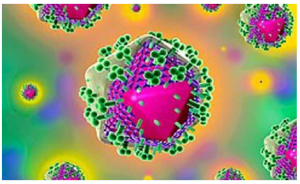
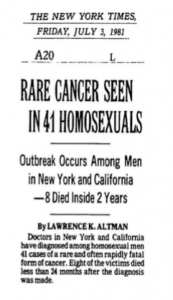
1981
- Centers for Disease Control and Prevention
(CDC) publishes first report of a rare pneumonia (PCP) in five gay men in Los Angeles. - The first Kaposi’s Sarcoma cases reported in
New York and Los Angeles. - New term Gay Related Immune Deficiency
(GRID) 200 cumulative cases reported
1982
- Cases identified among gay men, injecting
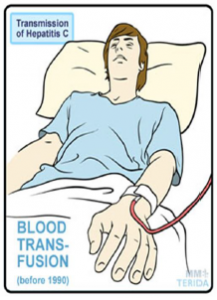
drug users, hemophiliacs and infants. - GRID becomes Acquired Immune
Deficiency Syndrome (AIDS). - First transfusion related case identified.
- Worry over contaminated blood supply.
- First AIDS cases, known as “slims,”
reported in Rakai, Uganda.
1983
- Two heterosexual females exposed
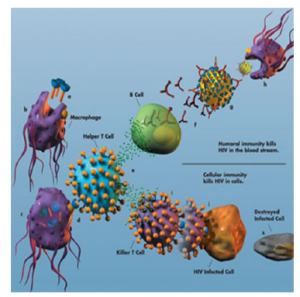
through sexual contact with infected
males. - French and U.S. scientists conclude the
likely cause of AIDS is a retrovirus. - CDC establishes AIDS case definition.
- Blood industry refuses to screen
donations.
1984
- Dr. Robert Gallo
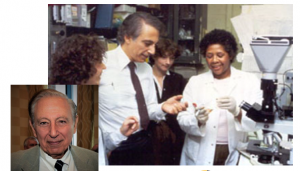
announces that his
laboratory has
isolated the AIDS
virus HTLV III.
1985
- International debate over discovery of AIDS virus.
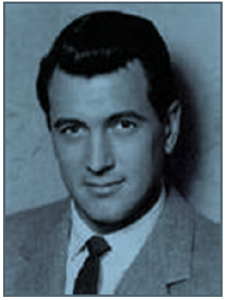
- Blood donations tested with ELISA and Western
Blot assays begins. - Military forces begin testing applicants.
- Public Health Services establishes test sites.
- Documented 20,000 cumulative cases in U.S.
- Noted actor, Rock Hudson, dies.
- 1 st International Conference on AIDS held in
Atlanta, Ga.
1986
- International Commission on
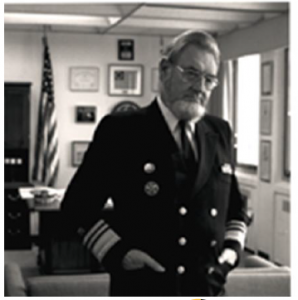
the Nomenclature of Viruses
names the AIDS virus as
Human Immunodeficiency
Virus (HIV). - U.S. Surgeon General, Edward
Koop, issues a report on AIDS
that calls for sex education
and prevention measures.
1987
- Liberace and Michael Bennet die of AIDS.
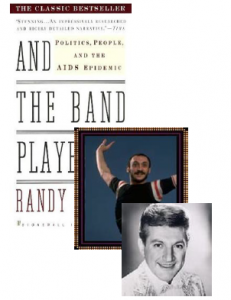
- AIDS Memorial Quilt displayed on the National Mall in
Washington, D.C. - AZT approved as first AIDS drug.
- Randy Shilts publishes And the Band Played On.
- President Reagan speaks about AIDS for the first time.
- ACT UP is founded in New York.
- Revisions to AIDS case definition.
- Required HIV testing of immigrants to the U.S.
1988
- First Presidential AIDS
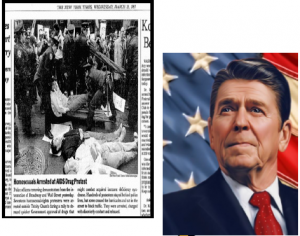
Commission hearing. - ACT UP pressures Food and
Drug Administration (FDA) to
speed up drug approval
process. - First World AIDS Day
Commemoration
December 1, 1988.
1989
- CDC registers 100,000
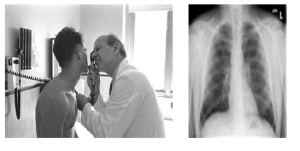
cumulative AIDS cases in
the U.S. - Aerosolized pentamidine
approved to treat
pneumocystis carinii
pneumonia (PCP).
1990
- Keith Haring dies.
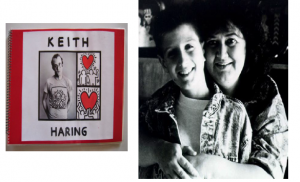
- Ryan White dies.
- The Ryan White CARE Act
is enacted by Congress
(August 18, 1990), an act
of the United States
Congress and the largest
federally funded program
in the United States for
people living with
HIV/AIDS.* CARE : Comprehensive AIDS Resources Emergency.
1991
- Basketball star, Earvin
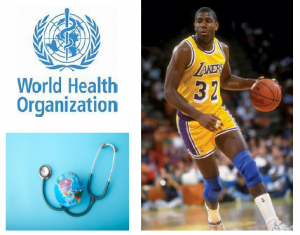
“Magic” Johnson,
announces he is HIV
positive. - The World Health
Organization (WHO)
reports 10 million new
infections worldwide.
1992
- Professional tennis legend, Arthur

Ashe, confirms that he has AIDS. - 250,000 cumulative AIDS cases
reported in the U.S. - First reports of combination anti
viral therapy. - American actor, Anthony Perkins,
known for his role as Norman
Bates in the Psycho movies, dies
from AIDS.
1993
- CDC case definition revised to
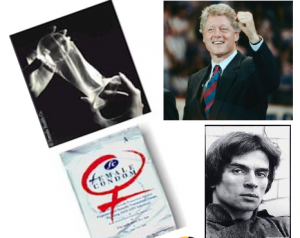
include female specific
manifestations. - The female condom is approved.
- 9 th International conference
reports a vaccine or cure may
never be found. - Dancer, Rudolf Nuryev , dies of AIDS.
- Office of National AIDS Policy
(ONAP) established by President
Bill Clinton.
1994
- AZT given to pregnant women to prevent
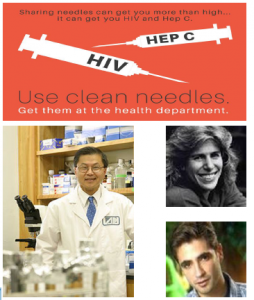
vertical transmission. - Pedro Zamora and Elizabeth Glaser die of
AIDS. - Scientists, Ho and Shaw, report that HIV
is not dormant after initial infection. - Experimental viral load testing begins.
- HIV surveillance begins.
- First Needle Exchange Program (NEP) in
Maryland.
1995
- Olympic medal winner, Greg Louganis,

announces that he has HIV. - First protease inhibitor approved.
- CDC announces that AIDS has become the
leading cause of death among 25 44 year
olds in the U.S. - 500,000 cumulative AIDS cases reported
in the U.S. - Rap star Eazy E dies of AIDS.
- First reports of declines in HIV prevalence
in Uganda published in the BMJ.
1996
- Combination therapy becomes the
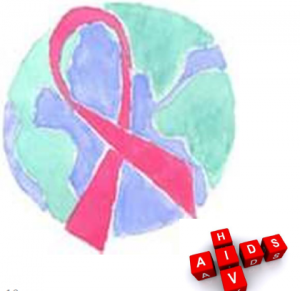
recommended standard of care in the
U.S. - 573,800 cumulative AIDS cases
reported in the U.S., of whom 357,598
had died. - The United Nations estimates that
22.6 million people worldwide are
infected and 6.4 million have died.
1997
- By September, cumulative U.S. AIDS
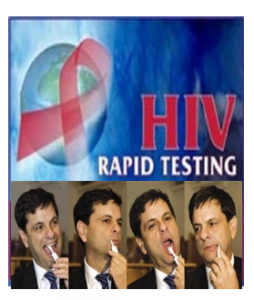
cases have reached over 626,000. - Rapid assay tests using oral specimens
in use. - First time CDC reports the occurrence
of AIDS defining opportunistic illnesses
has declined which is attributed to
increased use of combination
antiretroviral therapy.
1998
- Approvals of Needle Exchange Programs
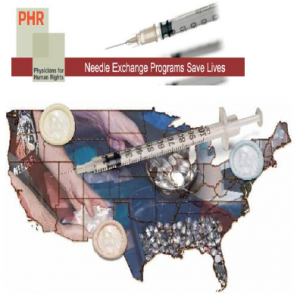
(NEPs) expands despite lack of federal
funding. - 48,269 persons were reported with AIDS this
year, pushing the cumulative total over
688,000. - 57 percent of all new AIDS cases were
reported in five states: New York, New
Jersey, California, Florida, and Texas. - 29 states and the Virgin Islands use
confidential named based HIV reporting for
adolescents and adults.
1999
- Worldwide, women
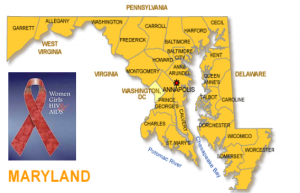
accounted for 52 percent of
the 2.1 million adult deaths
related to AIDS. - Alaska, New York, and Texas
began HIV case surveillance. - Maryland’s AIDS caseload
hits 20,000.
2000
- South African officials begin lobbying

drug companies to implement price
cuts. - Therapeutic vaccine, Remune , being
tested in the U.S., Europe, and Thailand. - First U.S. company to begin testing for
HIV using urine samples. Sentinel
testing service offers urine based
testing for HIV 1 antibody, chlamydia
DNA, and gonorrhea DNA.
2001
- United Nations General Assembly
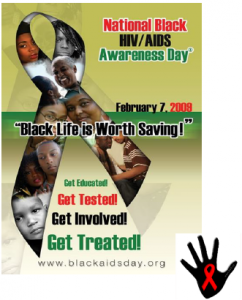
convenes first ever special session on AIDS. - 1st Annual National Black HIV/AIDS
Awareness Day in the U.S. - June 5 marked 20 years since first AIDS
case was reported. - “DOHA Agreement” reached at World
Trade Organization, meeting in Doha,
Qatar, allowing developing countries to
buy or manufacture generic medications
for HIV/AIDS.
2002
- The Global Fund to Fight AIDS,
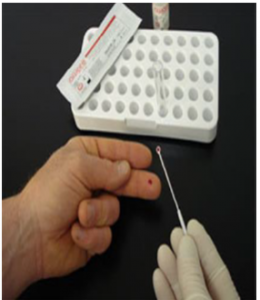
Tuberculosis, and Malaria begins
operations. - UNAIDS reports that women
comprise about half of all adults
living with HIV/AIDS worldwide. - Approval of OraQuick Rapid HIV 1
Antibody Test, by U.S. FDA; first
rapid test to use finger prick. - HIV is leading cause of death
worldwide, among those ages 15 59.
2003
- President George W. Bush announces the
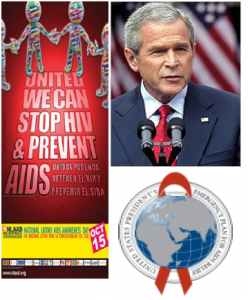
President’s Emergency Plan for AIDS Relief,
(PEPFAR) a $15 billion initiative to address
HIV/AIDS, tuberculosis, and malaria in 12
countries. - 1 st Annual Latino AIDS Awareness Day in the
U.S. - The William J. Clinton Presidential Foundation
secures price reductions for HIV/AIDS drugs
from generic manufacturers to benefit
developing nations.
2004
- 15th International AIDS Conference “Access
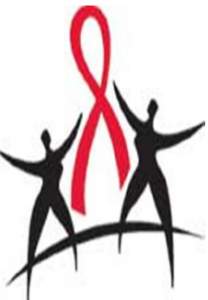
for All” in Bangkok, Thailand. First to be held
in Southeast Asia. - UNAIDS launches The Global Coalition on
Women and AIDS to raise the visibility of the
epidemic’s impact on women and girls
around the world. - OraQuick Rapid HIV 1 Antibody Test
approved for use with oral fluid by U.S. FDA.
2005
- United Kingdom hosts G8 Summit at Gleneagles
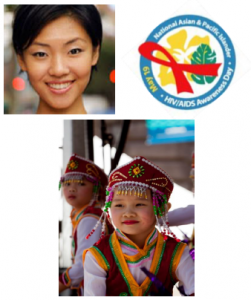
focus on development in Africa. - The U.S. FDA grants “tentative approval of
generic AIDS drug regimen for potential
purchase under the PEPFAR”. - First ever approval of an HIV drug regimen
manufactured by a non U.S. based
pharmaceutical company. - The first annual National Asian and Pacific
Islander HIV/AIDS Awareness Day.
2006
- 1 st Annual National Women and Girls
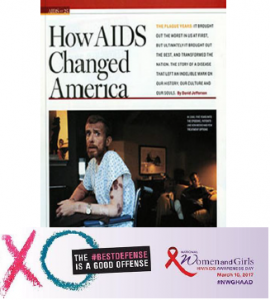
HIV/AIDS Awareness Day in the U.S. - June 5 marked a quarter of a century since
the first AIDS case was reported. - CDC recommends routine HIV screening for
all adults, aged 13 64, and yearly screening
for those at high risk. - U.S. Congress reauthorizes the Ryan White
CARE Act for the third time.
2007
- WHO and UNAIDS recommend that “male
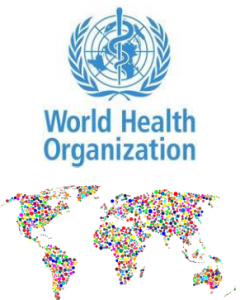
circumcision should always be considered as
part of a comprehensive HIV prevention
package”. - President Bush calls on Congress to
reauthorize PEPFAR at $30 billion over five
years. - International HIV/AIDS Implementers Meeting
held in Kigali, Rwanda, hosted by the
Government of Rwanda.
2008
- 17 th International AIDS Conference
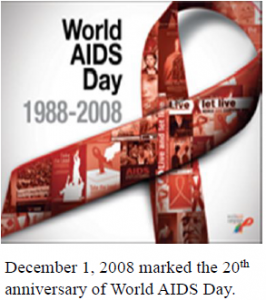
“Universal Action Now” in Mexico City.
First to be held in Latin America. - As of April 2008, all 50 states, the District
of Columbia, and five dependent areas:
American Samoa, Guam, the Northern
Mariana Islands, Puerto Rico, and the U.S.
Virgin Islands use the same confidential
name based reporting system to collect
HIV and AIDS data.
2009
- President Barack Obama signed legislation
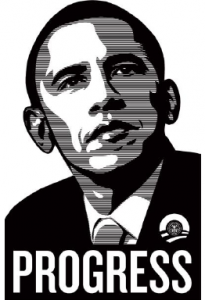
to extend the Ryan White CARE Act. - President Barack Obama eliminated the
1987 ban that prevented non U.S. citizens
from traveling or immigrating to the U.S. if
they were HIV positive. - President Barack Obama launches the
Global Health Initiative: A six year, $63
billion initiative with PEPFAR at its core to
address global health issues.
2010
- Removal of U.S. HIV travel and
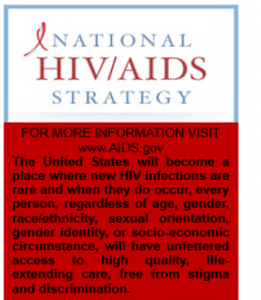
immigration ban officially begins. - The XVIII International AIDS
Conference held in Vienna, Austria,
with the theme “Rights Here, Right
Now,” emphasizing human rights as a
central part of the HIV response. - The White House released the first
comprehensive National HIV/AIDS
Strategy for the U.S. in June 2010.
2011
- 30 Year Anniversary of HIV in the U.S., and Marylanders

attempted to break the Guinness World Record by forming the
largest human red ribbon at Coppin State University. - The iPrex study showed that men who have sex with men (MSM)
and transgender women taking pre exposure antiretroviral
medication reduced HIV acquisition. - The 052 study with discordant heterosexual couples showed that
antiretroviral medication reduced transmission of HIV and study
of vaginal microbicides showed reduced HIV acquisition. - CDC shifted funding and focus to “High Impact Prevention”.
2012
- June 2012, U.S. Supreme Court ruled to uphold
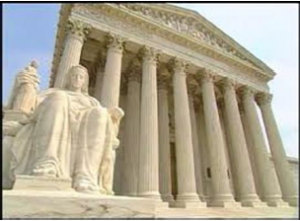
the constitutionality of the Patient Protection
and Affordable Care Act (ACA) - July 2012, The 19 th International AIDS
Conference opened in Washington D.C., with
the theme “Turning the Tide Together” - U.S. FDA, Antiviral Drugs Advisory Committee
(AVDAC) approved the label change for
Truvada to be used as a pre exposure HIV
prophylaxis (PrEP) among HIV uninfected MSM
and transgender women; partners in
serodiscordant couples.
2013
- National Institutes of Health (NIH)
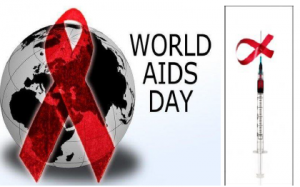
scientists discovered how HIV kills
immune cells. - The FDA approved the first rapid
test that can detect both HIV 1 and
HIV 2. - World AIDS Day Dec. 1, 2013 25th
Anniversary! World AIDS Day was
initiated in 1988, seven years after
the first cases of AIDS were
reported.
2014
- May 2014 U.S. Public Health Service released the first comprehensive
clinical practice for PrEP. - Delegates to the 20 th International AIDS Conference in Melbourne,
Australia, including former IAS President Joep Lange, were on Malaysian
Airlines Flight MH 17 that crashed over Ukraine.

2015
- CDC warns opioid abuse could lead to
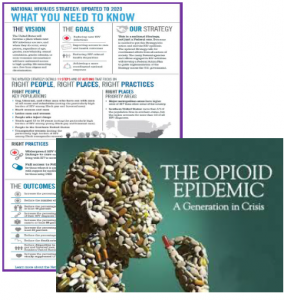
more severe outbreaks of HIV and
Hepatitis C. - Austin, Ind. recorded 142 new HIV cases
in April 2015 since December 2014. - July 2015, National HIV/AIDS Strategy
for the U.S. updated to 2020.
2016
- March 2016 Johns Hopkins surgeons
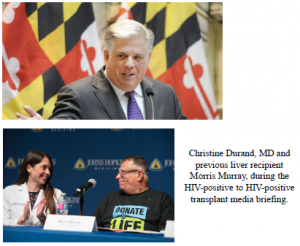
are the first in the U.S. to perform a
liver and a kidney transplant between
HIV donors and recipients. - Maryland Governor Larry Hogan signed
the Opioid Associated Disease
Prevention and Outreach Act. Referred
to as the Syringe Services Programs Bill,
will allow thousands of Maryland
residents to access life saving sterile
syringe exchange programs.
2017
- The international Undetectable Equals
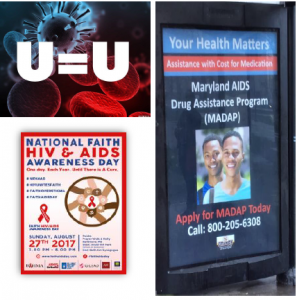
Untransmittable (U=U) Campaign U=U
became the most important prevention
message of 2017. - CDC officially admits people with HIV
who are undetectable can’t transmit HIV - Multiple PrEP clinics established
throughout Maryland. - The first National Faith HIV Awareness
Day was observed on August 27.
2018
- June 5 recognized as the 1st national
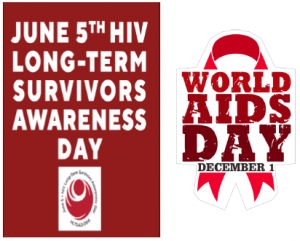
awareness day for long term survivors of
HIV and AIDS. - Currently 26 percent of all 1.4 million
people living with HIV in the U.S.
became positive before 1996. - “It Is Still Not Over.” HIV Long Term
Survivors Day #HLTSAD2018. - 2018 is the 30 th Anniversary for the
commemoration of World AIDS Day.
2019
- In the State of the Union Address on
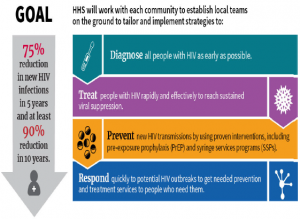
February 5, 2019, President Donald J.
Trump announced his Administration’s
goal to end the HIV epidemic in the
United States within 10 years. - To achieve this goal and address the
ongoing public health crisis of HIV, the
proposed Ending the HIV Epidemic: A
Plan for America will reduce new HIV
infections in the United States by 75%
in five years and by 90% by 2030.
2020
- The global COVID 19 Pandemic brings c oncern for HIV
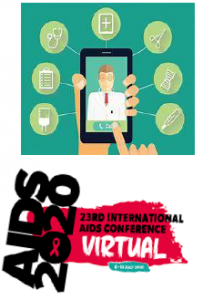
positive patients, and forces local, national and
international conferences to be held virtually. - Telemedicine becomes a standard of care and helps
consolidate primary care in HIV/AIDS management. This
may ultimately lead to fewer gaps in care, decreased
specialist costs, and increased access to services for
patients living with HIV/AIDS. - AIDS2020 Conference highlights include data showing
long acting injectable cabotegravir is even more
effective in preventing HIV than daily oral Truvada.
Reference:
Maryland Department of Health Prevention and Health Promotion Administration
http://phpa.dhmh.maryland.gov

